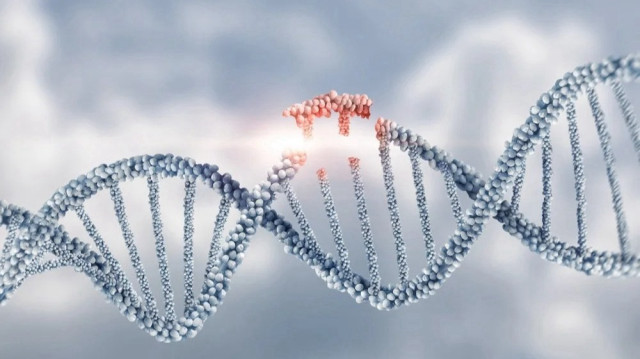
Protective effect lasts up to 4 days while potentially providing short-term protection for health care workers
A recent study published in the Science Translational Medicine journal revealed that the recreation of a rare genetic mutation could enable near-universal virus immunity, Science Alert reported Tuesday
A rare genetic mutation, a deficiency in interferon-stimulated gene 15 (ISG15) that appears to make people nearly invulnerable to viruses has been recreated in laboratory animals, raising hopes it could one day be harnessed as a therapy.
People with ISG15 deficiency experience mild, ongoing inflammation, but their virus-fighting proteins remain constantly active. Despite exposure to common infections like the flu, measles and chickenpox, they report only minor symptoms.
"In the back of my mind, I kept thinking that if we could produce this type of light immune activation in other people, we could protect them from just about any virus," said Columbia University immunologist Dusan Bogunovic, who first discovered the phenomenon 13 years ago.
Bogunovic and colleagues have used technology similar to mRNA vaccines to provide a temporary ISG15 deficiency in lab animals.
Bodies of mice and hamsters given the treatment created 10 key proteins with antiviral effects that blocked infections at multiple stages.
Further challenged with SARS-CoV-2, proteins of the vaccinated animals restricted the infection but did not interfere with the rest of the animals' immune systems.
"We only generate a small amount of these 10 proteins, for a very short time, and that leads to much less inflammation than what we see in ISG15-deficient individuals," Bogunovic explained, underlining that the inflammation is "enough" to prevent viral diseases.
Although the protective effect lasted up to four days, it can potentially provide short-term protection for health care workers before specific vaccines are available.
The technique could strengthen responses to future pandemics like COVID-19 or the Spanish Flu, but it remains in early testing with major hurdles in safely delivering mRNA to where it's needed in humans.







